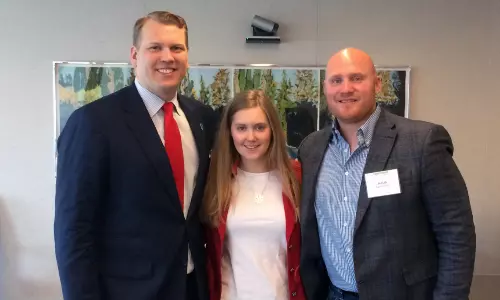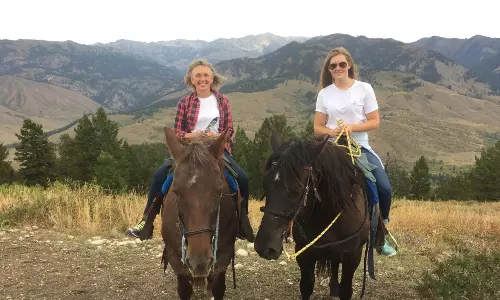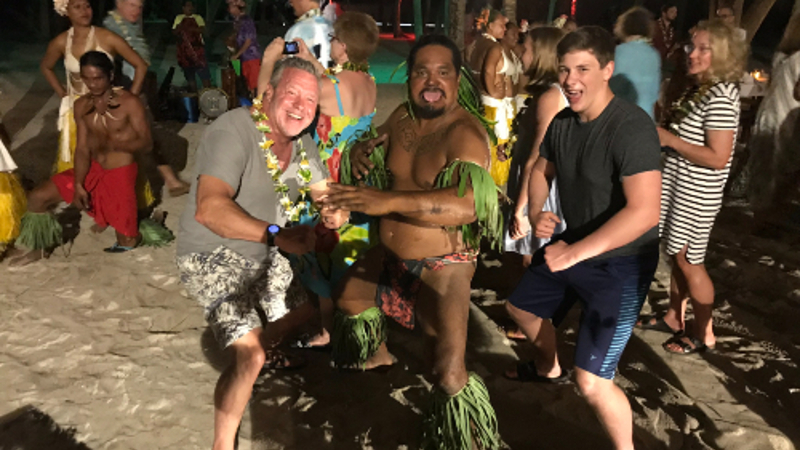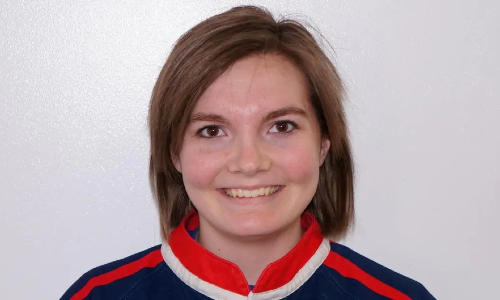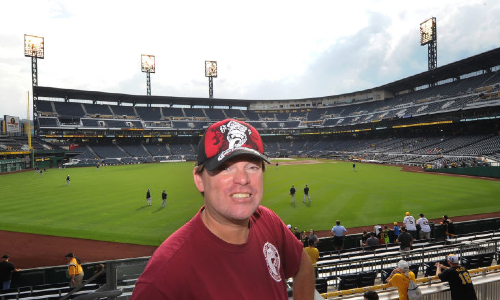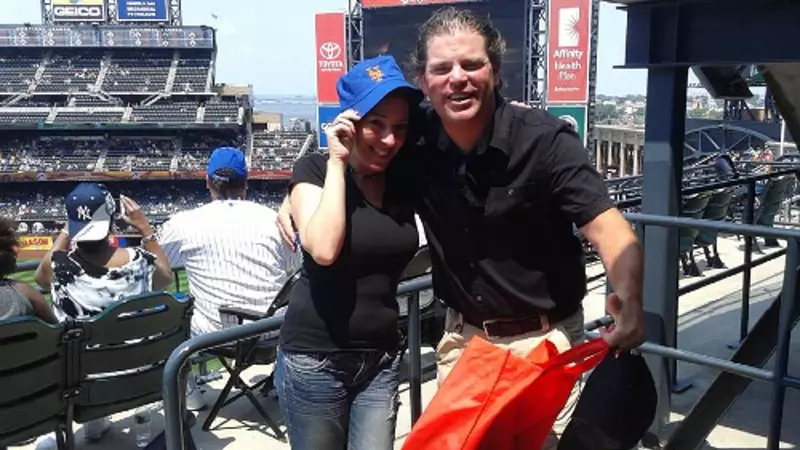Posted: August 1, 2017
Disclaimer: I am not a medical professional. The advice that I’m giving is based on my personal experience and treatments that have worked for me. Please consult with your doctor before beginning any of the treatments.
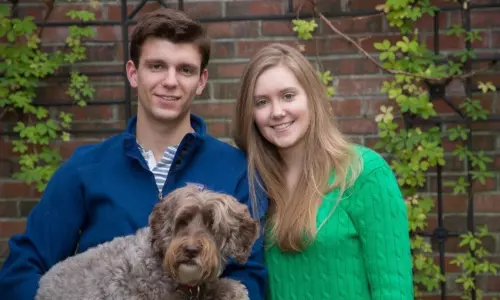
Thank you to everyone who submitted questions on Post-Concussion Syndrome (PCS) for this #AskEsther mailbag! If you need a reminder of who I am, you’ll find that here. I hope to have more content soon, so if you have questions on PCS for a teenager who has been through it, don’t stop sending them to [email protected]. Now… on to the mailbag!
From Jenn
Hi Esther — my 13 yr old daughter had a severe concussion during a soccer game over 2 years ago. She has since struggled with migraines, neck pain, her grades have suffered, and she has not been the same socially. She went through extensive physical therapy for about a year following the concussion to help her back and neck. Is there anything we can do to help her with these other things that might be associated with her concussion?
Thanks for your help!
Jenn,
I’m so sorry to hear about your daughter, and I can relate to what she’s going through. Physical therapy significantly helped me with my symptoms. The aspect of PT that was most helpful for me was vestibular therapy, which not all PT includes. Vestibular therapy can help with neck pain and headaches. In addition, my physical therapist gave me exercises for my eyes; I had a severe convergence insufficiency, which meant that I was seeing double much too far away which made reading and schoolwork difficult. I had no idea that I had this convergence issue so I’d suggest asking about it even if your daughter doesn’t have any eye symptoms. Improving this helped my headaches and made schoolwork easier.
I would also recommend Cognitive Behavioral Therapy (CBT), which is basically memory and executive functioning retraining; doing CBT made me feel confident about going back to school after concussions, and I really credit it with my success in school. Finding a CBT specialist may not be easy: make sure that he or she combines memory retraining with helpful daily skills.
In terms of school and grades, help your daughter find good advocates at school (a school nurse, teacher, adviser) since she may need accommodations such as extra time or reduced coursework. Her school may ask for neuropsychological testing in order to grant accommodations.
Other treatments that I tried were acupuncture, chiropractic therapy, massage, and migraine medications; I would suggest talking with your doctor about any of those. The Concussion Legacy Foundation has some great content on PCS treatments here.
As I understand it, and I’m not a doctor, headaches with PCS can be migrainous, and they can also be tension headaches as a result of having to try harder to stay focused. Ask your daughter’s doctor to help her distinguish which she might be having.
You also mentioned that your daughter has not been the same socially. I have found the social piece one of the hardest things during my concussion journey. I think it is extremely important to stay social, but oftentimes social engagements seem like a burden. I’m in high school, and I’ve found that I just can’t go to parties because of the noise, stimulation, and lights, but I’ve found alternative ways to still see friends. I’d recommend finding quiet restaurants to go to dinner with friends or having friends over to watch a movie rather than going to the cinema, which can be a lot of stimulation. And please tell her not to be afraid to tell her friends why she can’t participate in certain things. I have found that while some friends cannot understand or even remotely empathize with invisible symptoms, good friends are more than happy to accommodate you.
Hope this helps, and I wish all the best to you and your daughter!
Esther
From Jennifer
In September, it will be two years since I was run over by my horse. I don’t remember any of it, and I was in the hospital for 3 days and 2 nights, I didn’t break anything, it was for the concussion, and I couldn’t remember what someone said to me the moment before for about 20 hours afterwards apparently. It was a rough go for several months afterwards, I’m doing much better now, however I still get light headed every time my head bends down low, will this go away at some point or can I expect to deal with that indefinitely?
Jennifer,
I’m glad that you are feeling better now, but that sounds like such an awful experience! The lightheadedness is hard—I’ve experienced it as well. One thing that may help is vestibular therapy, which helps dizziness, lightheadedness, and balance. You might also ask a trained physical therapist or specialized eye doctor to check you for any vision problems, such as convergence insufficiency. These therapies helped to decrease my dizziness and lightheadedness.
Generally, when you’ve suffered with symptoms for a while you can think that this will be a problem forever, but I urge you to be hopeful since you certainly have been recovering since this injury!
All the best,
Esther
From Marrianne
Hi Esther,
I’ve never had a concussion before until I had a really bad fall on May 10th, 2017. It was more like a “flying face plant” to the floor, rushing through the airport full speed, and tripped over a table and went flying and landed on my face/head. Paramedics checked me out, but I didn’t want to go right to the hospital because I hadn’t seen my son in 2 years. However, the next morning the pain was twice as bad all over, & in my head and my right eye was swollen shut. My husband took me to the ER and they did a CT scan, lots of x-rays, etc. I was bruised from head to toe, but only broken nose and lots of swelling above my right eye. Really big bump on the forehead above right eye. I’ve also had my eyes checked w/ an ophthalmologist because my right eye vision is just a little off, not terribly blurry, but a little around the periphery. He didn’t find anything wrong, and said something like if there’s swelling inside pressing on my optic nerve there’s nothing he can do about that anyway. I’m hoping that the swelling will continue to go down and it will get better. I use ice packs on my head, warm wraps on my very painful neck, etc.
Previous to all this I had chronic migraines which doesn’t help matters, but my question is that as the weeks have gone on I was still having daily headaches and nausea every day which has been super bad some days. No actual vomiting, just nausea. I have read a lot since the accident about concussions and realize how important rest is, and I’ve tried in the last couple days to rest more (actually feel like I’ve done nothing, other than washing dishes and a little laundry; which is hard for me- I normally work from home, and do lots of computer work, I know the screen time has to be limited). The last two days have been a little bit better, no nausea.
Would you still advise seeing a neurologist at this point or not? I’m frustrated because I don’t know how much rest is rest. And I don’t know how long this is supposed to take to recover.
If you can give any advice I will really appreciate it!
Thank you!
Marrianne,
I’m so sorry to hear that you experienced this! I would definitely suggest seeing a neurologist since you are still experiencing symptoms.
As for rest, this was a hard thing for me to gage as well; if you are used doing a lot and always being busy it can be very hard to take time off, but it’s very important to do so, especially if you have felt better the last two days whilst resting—seems like your brain needs this. I think taking frequent breaks from tasks and especially from screen time can be very helpful. I would also recommend a yellow filter for your screen when you have to use a screen (you can use a clear plastic folder from Staples). Anything you can do to reduce stimulation to light, noise, elevated heart rate, and cognitive work would help now in my experience. Wear sunglasses when outside, when indoors face away from sunlit windows, try to avoid stimulating environments (sometimes a mall or loud restaurant can feel very overwhelming).
Some people with Post-Concussion Syndrome experience migraine-like headaches, so your history of migraines confuses things, and your vision issue may be contributing. A good neurologist may be helpful.
